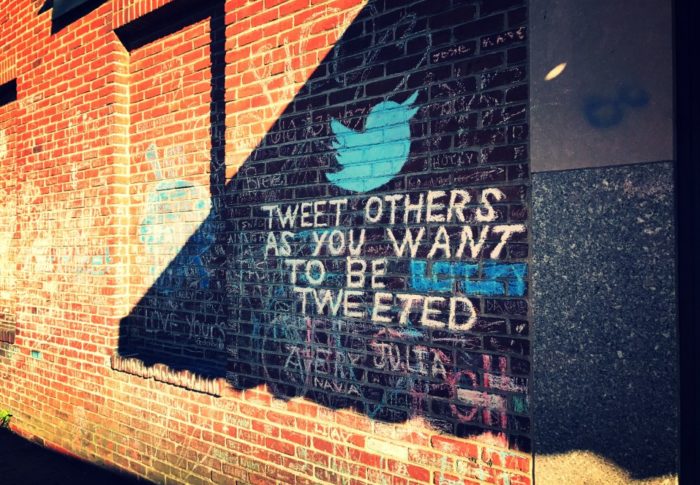Good Monday morning. It’s March 76th.
Things change fast. At this point ten years ago, Blockbuster was still in business, Haiti was trying to recover from an earthquake that killed more than 300,000 people, and BP’s Deepwater Horizon exploded, killing eleven and creating the largest environmental disaster in U.S. history.
If that all seems long ago, take solace in knowing that we will one day view the COVID-19 novel coronavirus in the same way. Meanwhile, be kind to yourselves and to others.
Reach out to George if you need to brainstorm about your organization doing new things in a digital way. We’ve already had these conversations with clients and friends. Now more than ever, we need to all work together and support each other. Just press REPLY in your email client to send a note.
Today’s Spotlight is 1,595 words, about a 6 minute read.

Google news page for a viewer in France.
1. News to Know Now
a. Google must pay French publishers for using capsule views of their content in the Google News product, the French government ruled late last week. European officials have cracked down on Google and other American Big Tech companies over the past several years. Last year, Google was charged a $1.1 billion tax penalty and required to honor “right to be forgotten” removal requests from European consumers. Google said that it would comply with the decision and create content deals with EU publishers.
b. Facebook is rolling out a “Quiet Mode” for its mobile apps. Quiet Mode isan optional user setting that stops most notifications and displays a countdown timer if you try to access Facebook before the time limit you created. Yes, you can go around it, but it’s a circuit breaker that helps you pause long enough to distract yourself with something else. Read more here to learn how to configure it.
c. The one space people have won. Law professor Alan Chen posted to Twitter that Microsoft Word now defaults to a single space after each sentence as the Good Lord intended. If you press the spacebar twice after a period, Word will now reward you with an error. Or you could use Google Docs for free. And, sure, you can change Word’s settings too if you want.
Last week’s poll results:
Wowsa! Half of you are using Zoom for videoconferencing. The next most popular conferencing platform was Google Hangouts/Meet. We even got a vote for Facebook Messenger.
Don’t forget to make your voice heard this week on whether people should space once or twice after a sentence-ending period. The one click poll is at the end of this newsletter.
2. COVID-19 Online Resources and News
Trackers
Covidly — my go-to.
Johns Hopkins — the one you see on the news.
Bing — much improved. Now includes color coding and graphs by U.S. county.
NY Times State Level Restrictions — hotels, driving, and restaurants rules.
Resources
Free NY Times for HS students and schools
Hoax and inaccurate news checklist video — BBC on Twitter
Fact check analysis of misinformation online — Reuters Institute at Oxford
Tech News
Apple & Google collaborate on contact tracing — Washington Post
NJ and FL using drones to police social distancing — Intelligencer
Facebook misinformation pages originating from Kosovo — Snopes
NASA sees exponential jump in malware attacks — Ars Technica
We suggest reading this summary of tweets posted by Steak-umm (yes, the meat company) about understanding all the data we’re seeing.
Bonus points: “we’re a frozen meat brand posting ads inevitably made to misdirect people and generate sales, so this is peak irony, but hey we live in a society so please make informed decisions to the best of your ability and don’t let anecdotes dictate your worldview OK”
Read the whole thread.
3. Search Engine Optimization News
Google review functionality is slowly being restored.Search Engine Land reported Thursday that Google had quietly restored merchant review replies and that “new user reviews, new user photos, new short names, and Q&A will gradually return by country and business category.”
Google search engineer John Mueller also confirmed that Google sometimes creates its own snippet to describe a link in its search engine results. A website can propose that a certain snippet is used, but Google’s software may create its own.
One big reason that this happens is if a website doesn’t follow best practices for creating snippets. Google also may change the description if a person searches for something specific that is also described on the website’s page. You may have seen examples of this when a question and answer is excerpted or when a video result is displayed and the video is cued to the answer in a Google result.
4. Also in the Spotlight — Delivery Slot Shortages Create Opportunity
Georgetown senior Adrian Hertel showed last week that necessity truly is the mother of invention. Hertel told CNBC that his parents have health issues and couldn’t get an Amazon Fresh or Whole Foods delivery slot.
Hertel wrote a program that uses a Macintosh’s web browser to constantly poll the site for delivery slots. There is a healthy debate at the download site over whether tools like this empower hoarders, but someone better give Mr. Hertel a job. It’s hard to find developers who think like marketers.
5. Following Up: Zoom
Zoom’s blessing and curse is that the world decided to make the software a de facto standard when hundreds of million of people went to work from home. We wrote last week about the many privacy, security, and scale challenges the company faces.
Last week’s news was filled with announcements about organizations understandably abandoning ship and going to a competitor from Google, Microsoft, or other companies. The biggest names were New York City’s schools (which have their own issues) to Google (which owns a competitor).
Those systems and any others are vulnerable in their own ways. Zoom has gone from 10 million users in December to 200 million users in March. That explosive growth would make any platform an attractive target for hackers and other bad actors.
Here are some useful Zoom tips from Elite Daily including this important one for paid accounts: “If you’re hosting a meeting with a paid Zoom account and choose to save the meeting transcripts, all participants will have access to the meeting transcripts … as well as any private messages between the hosts and other meeting members.”
If you are still concerned about Zoom, here is CNET on all of its security issues and the same for privacy and security via Tom’s Guide.
6. Debugging: Sextortion Emails
Good ol’ Sophos is here to remind us that a common extortion scheme involves an out-of-the-blue email that threatens you with the release of images of you looking at porn. The email kindly requests a few thousand bucks or you will face publication of side-by-side images of you and what was on your screen.
Read the sample emails or watch the video Sophos made regarding webcam recordings.
7. ProTip: Instagram Messages on PC
You’ve probably learned that Instagram in a web browser is very different from Instagram on its native mobile app. But now you can finally send Instagram direct messages from the web version.
Read Lifehacker’s for the news.
8. Great Data: Social Distancing by Area
Reuters published a great map animation that shows how well people followed social distancing guidelines on a county level from February forward. We’ve looked at animations before, but this is a county level map and features data from 7 million devices.
10. Coffee Break: If High Street Shopping was like online shopping
Is it Christmas in April?
Sadly, no. But you have a wonderful opportunity to tag along with Lucy and BBC One since you’ve become quite the expert at online retail over the past weeks.
Hey, we know you love us too since you’re down here at the bottom of the newsletter. Would you do us a favor and forward this to someone who you think will enjoy Spotlight like you do? Tell them they can sign up for free by clicking the silver button below.
Here are three ways that we can help you:
1. Get a free SEO audit on our website.
2 Have a simple, fact-based question about digital marketing? Reply & ask George for free.
3. If your organization needs help with search, social media, or advertising, have a look at what we do.
See you Monday.



